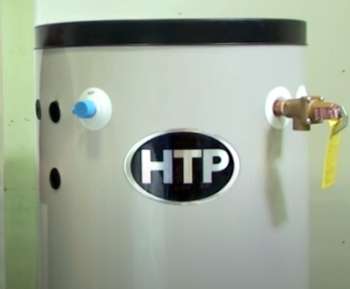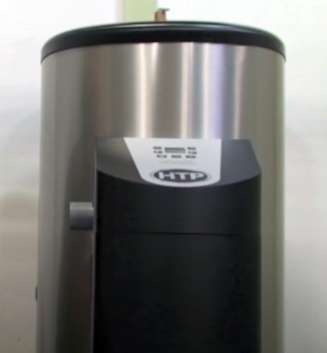Water heaters are vital to any home, and for many households, the HTP Phoenix water heater is a top choice. Known for their efficiency and longevity, these units stand as a testament to quality.
However, like any other mechanical system, the HTP Phoenix water heater is not immune to issues. As a user, you might face several problems that need troubleshooting.
Let’s plunge into the common problems with HTP Phoenix water heaters and how to address them.
Understanding The HTP Phoenix Water Heater
Before we delve into the specific issues, let’s get a brief overview of the HTP Phoenix water heater.
HTP (Heat Transfer Products) is a renowned company offering an array of residential and commercial water heaters, and the Phoenix model is one of their flagship products. It’s celebrated for its high efficiency, stainless steel design, and low NOx emissions.
Yet, no appliance is perfect, and understanding potential faults can save you from unexpected cold showers.
Common Problems with HTP Phoenix Water Heater

- Issue 1: No Hot Water
Perhaps the most common problem with HTP Phoenix water heaters, or any water heater for that matter, is the lack of hot water.
If you turn on your shower and get greeted with a cold splash, you know there’s an issue.
This could be due to a tripped circuit breaker, faulty thermostat, or a malfunctioning heating element.
In case of a tripped breaker or a thermostat issue, resetting the breaker or adjusting the thermostat might solve the problem. If it’s a faulty heating element, you may need to call in a professional to replace it.
- Issue 2: Inconsistent Water Temperature
Few things are more vexing than a shower that oscillates between hot and cold. This issue can stem from a defective thermostat or accumulated sediment in the tank.
The latter can interfere with the heater’s capacity to maintain consistent temperatures. To resolve this, consider hiring a professional to clean the tank or replace the thermostat if it’s faulty.
- Issue 3: Leaking Water Tank
A leaking tank is another common problem with HTP Phoenix water heaters. Leaks can be caused by numerous issues ranging from a faulty pressure relief valve to corroded water tank walls.
Addressing this issue usually involves replacing the damaged component. However, if the tank is corroded, you may have to consider getting a new water heater.
- Issue 4: Noisy Operation
An unusually noisy water heater is not just annoying; it can signal a serious problem. The likely culprits are the heating elements or sediment build-up at the bottom of the tank.
Flushing the tank often helps, but if the heating elements are faulty, you will need a technician to replace them.
- Issue 5: Rotten Egg Smell
A “rotten egg” smell is an unpleasant and common issue that some HTP Phoenix water heater users may face. This odor comes from bacteria reacting with the anode rod inside the heater to produce hydrogen sulfide gas.
To resolve this problem, you’ll need to flush your tank and replace the anode rod.
- Issue 6: Discolored Water
If your water appears rusty or has a strange color, this might indicate a problem. The issue could be due to a failing anode rod or rust forming inside the tank.
Either way, the solution involves replacing the anode rod or, in severe cases, replacing the entire unit.

- Issue 7: Frequent Cycling
Frequent cycling – when your water heater frequently turns on and off – is another potential problem with HTP Phoenix water heaters.
This is often a result of a thermostat issue, or the tank size might not be adequate for your hot water needs.
To address this, have a professional inspect and adjust or replace the thermostat or consider upgrading to a larger tank.
- Issue 8: Inadequate Hot Water Supply
Are you not getting enough hot water, or does it run out too quickly? This could indicate a problem with the size of your water heater, the thermostat settings, or sediment build-up in the tank.
You might need to upgrade your water heater size, adjust the thermostat settings, or flush the tank to get rid of sediment build-up.
Remember, while some issues can be fixed with a DIY approach, others need the expertise of a professional. Don’t hesitate to seek help when faced with complex problems with your HTP Phoenix water heater.
FAQs About HTP Phoenix Water Heater
Lack of hot water is typically the most common water heater problem. This issue can be caused by a tripped circuit breaker, malfunctioning thermostat, or faulty heating elements.
On average, an HTP Phoenix water heater can last between 10 to 15 years. This lifespan depends on factors such as usage, maintenance, water quality, and installation quality.
Several reasons can cause your hot water heater to malfunction, ranging from electrical issues, a broken thermostat, sediment build-up, to a leaky tank. Regular maintenance can help catch and correct these issues early on.
Sudden failure of your water heater can be due to a serious fault like a broken heating element, a tripped breaker, or a significant leak. Immediate professional intervention is often needed in such cases.
Conclusion
Although the HTP Phoenix water heater is an excellent and reliable appliance, it can develop problems over time. It’s crucial to understand these issues and address them promptly to ensure a consistent hot water supply.
By doing so, you’ll extend your water heater’s lifespan and improve its performance. Always remember that regular maintenance is key to a long-lasting and efficient water heater.
